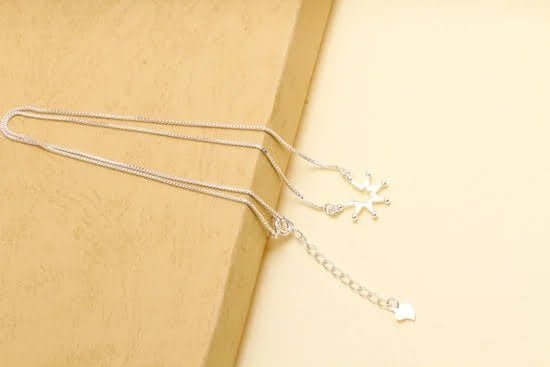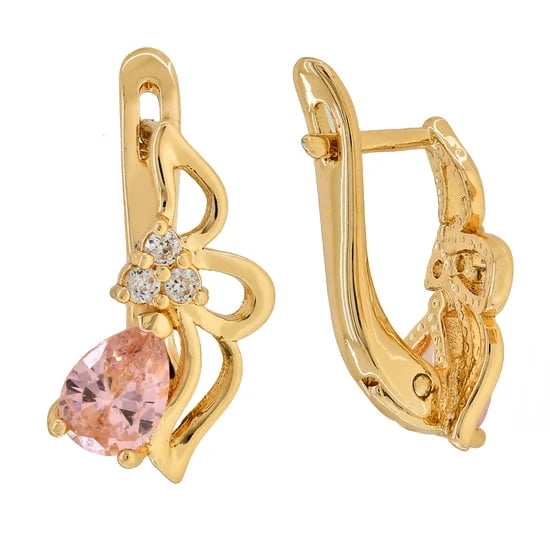Introduction
It’s becoming increasingly popular to use beer to clean jewelry. With the advancement of technology and access to trusted resources on the internet, many are turning to beer for its cleaning abilities due to its natural properties. Beer is known for being a mild alkali with ingredients such as calcium, phosphates, silicon, magnesium and maltose that provide a gentle cleansing without damaging any precious metals or stones. Beer also has light abrasive qualities which will help polish off dirt or grime. Not only is it an economical option but its pH neutral answer provides no risk of stripping the finish off your favorite golden band or antique heirloom necklace. Additionally, beer can be used safely on diamonds and other jewels as it contains no harsh chemicals making it safe for humans and their beloved treasures. With this simple step by step guide, you’ll learn how to clean your jewelry with beer in no time!
Benefits of Cleaning Jewelry with Beer
1. Natural Ingredients – Beer is a natural cleaning agent and contains organic ingredients that provide gentle, yet effective cleaning power. A few common ingredients found in beers are potential cleaners: phosphates, sulfates, potassium and sodium bicarbonate. These components have antiseptic qualities that help the beer effectively clean away dirt, dust and other contaminants from the jewelry.
2. Cost-Effective – Cleaning your jewelry with beer is a very affordable option since all you need is leftover or store-bought beer to get the job done. You don’t need any additional chemicals like other jewelry cleansers require when used to clean jewelry at home. This makes it an ideal choice for people on a budget who want to keep their precious items looking sparkly and new.
3. Gentle – When cleaning your jewelry with beer, you can be sure it won’t harm the metal or gemstones of the pieces as the liquid only needs a few minutes soaking time before rinsing them off with water. This helps protect vulnerable gems from being damaged by harsher cleaners that could cause discoloration or even breakage if not washed off properly after application.
4. Enhanced Shine – When using beer to clean your jewelry, it will get rid dirt and grime while also enhancing the brilliance of stones and metals alike on your pieces without having to use any harsh chemicals which might otherwise strip some of its shine away over time as well as damage softer materials such as pearls and Opals etc.,
What Type of Beer is Best for Cleaning Jewelry
Mild ales such as pale lagers or wheat beers are a great choice for cleaning jewelry. These beers have low bitterness and milder tastes, which makes them ideal for avoiding discolorations on more sensitive materials. Their lighter properties help to naturally clean off dirt, tarnish, and oxidation gently. The carbonation in beer also acts like an abrasive, polishing out scratches and dark spots as you scrub gently with a soft cloth. On the downside, these types of beers tend to suds up faster than darker types of beer like porters or stouts, so it can require more applications to create that perfect shine.
Porters and stouts are the most popular choices when it comes to cleaning jewelry with beer because they contain higher amounts of alcohol and hops which act as a powerful degreaser while gentler ingredients make up the rest of the recipe. This combination of molecules helps break down dirt and oil in just a few minutes across all kinds of surfaces, including gold and silver pieces as well as oxidized stones like turquoise or lapis lazuli. However, using porter or stout can leave behind dark markings due to the heavy blend of dark malts used throughout production. As such, frequent rinsing is necessary during each application so that marks don’t remain on valuable gems after use.
Preparing Beer for Cleaning Jewelry
Step 1: Choose the right beer. For jewelry-cleaning purposes, you should use a light-colored lager or ale, with little to no effect from hops and other flavor enhancers. Dark beers are not recommended for cleaning jewelry as their higher sulfur content could potentially permanently damage the jewelry’s finish.
Step 2: Prepare your work area. Before starting a jewelry-cleaning process with beer, it may be beneficial to lay some newspaper on your work surface in case of any spills or messes. Additionally, you should evaluate the risk of potential oxidation that beer can cause to certain types of metals and consider taking further steps if necessary (i.e. coating with wax or some type of protective barrier).
Step 3: Start scrubbing! Pour some beer into a small bowl and submerge your jewelry in it for around three minutes, but no longer than ten minutes. If cleaning gold or silver, consider making a paste out of baking soda and water (or just baking soda) and using that as an abrasive scrubber to more deeply clean any stubborn areas covered in dirt or grime.
Step 4: Rinse your jewelry off. Once all visible debris is gone, make sure to thoroughly rinse off each piece under running water until all soap residue is completely gone before allowing it to dry completely on a soft towel. Beer can quickly corrode untreated metals when exposed to air so it’s important that all pieces be 100% dry before being stored again.
Step 5: Store your jewelry away safely after use. To prevent further corrosion over time due to moisture buildup, store all pieces at room temperature in an enclosed box wrapped in cotton cloth or sealed plastic bag after they have been fully cleaned and dried
How to Clean Different Types of Jewelry With Beer
Gold Jewelry
To clean gold jewelry with beer, mix one part beer and two parts vinegar in a microwave-safe bowl until it boils. Put gold jewelry into the vessel and let it sit for 2 minutes. Then remove it using tweezers, dip the jewelry in water to rinse off the debris and gently scrub it with a toothbrush for a sparkly finish.
Sterling Silver Jewelry
To clean sterling silver jewelry with beer, soak the item in beer overnight. Then rinse it off and dry off with a soft cloth. Follow up by buffing with a silver polishing cloth or use a paste of baking soda and water to give your jewelry an extra shine.
Platinum Jewelry
To clean platinum jewelry with beer, pour one cup of room temperature beer over the item and wait for one minute before rubbing softly around the piece using cotton wool saturated in ammonia-free glass cleaner to prevent any damage. For effective results, buff lightly after every few wipes to achieve a sparkling finish on your platinum jewelry.
Pearls
A great way to clean pearls is also through beer! Make sure that you are only using non-alcoholic beer as any alcohol content can be damaging to pearls since its porous nature absorbs liquids easily . Mix one tablespoon each of mild soap and non-alcoholic beer together. Soak your pearl jewellery in this mixture for 10 – 15 minutes before taking out with an old soft brush carefully scrubbing away any dirt or grime accumulated on the jewellery surface. It is recommended that this process should be followed once every month or so to keep them looking their best!
Emeralds
Precautions must be taken while cleaning emeralds with alcohol especially if they have been treated as they could potentially cause damage such as cracking or color fading due to its vulnerability when exposed to acidic materials like vinegar and beers which contain ethanol substance. Therefore instead of using “beer” use rather warm soapy water mixed with mild dishwashing detergent as they are much gentler while still giving efficient results without compromising on quality or structure of emeralds over time.
Opals
Opals are known for their fragile nature due price variation depending on color pattern as well as size therefore special care needs to be taken while cleaning them – it is strongly advised not to use beers or ales as some have higher contents of alcohol which can potential spill onto opals surfaces leading up to eventual decay not mentioning production of both small & large cracks due reactivity within stone structure itself when come into contact with high percent levels of ethanol & other ingredients used when produce beers/ales etc.. instead warm soapy water spiked up with gentle detergents should suffice enough impact needed clean opal’s surface showing no signs damages afterwards either from physical standpoint nor structural weak point modification whatsoever
After Care for Cleaned Jewelry
Polishing Your Jewelry: Once your jewelry has been cleaned, you should polish it to a shine. The best way to do this is with a soft cloth. Rub the cloth gently over the jewelry in circular motions, always moving it in one direction. This will give your pieces a shine and make them look like new!
Prevent Discoloring and Tarnishing: To protect your jewelry from tarnishing or discoloration, be sure to store it away from light and moisture. Keeping the jewelry in an airtight ziplock bag or airtight container is also recommended. Additionally, use protective polishes such as Renaissance wax or other products designed specifically for protecting metal objects to keep your jewelry looking great.
Storage: When storing your cleaned and polished jewelry, it is essential to arrange them with care so that they do not get scratched, bent or tangled. Be sure to wrap each piece of jewelry individually in soft tissue paper or put them in compartments of a jewelry box so that they don’t rub against each other. Putting desiccant packs into the storage area will also help absorb any moisture that may be present as well as providing additional protection from tarnishing.
Additional Cleaning Options
Vinegar: Pros: Vinegar is an effective and easily-accessible solution for cleaning silver, gold, and other metals. It can be used full strength or mixed with salt to create a paste. Cons: Vinegar has a strong smell and isn’t suitable for porous stones such as turquoise or opal.
Baking Soda: Pros: Baking soda is a gentle cleanser and can be mixed with water to make a paste – it’s also an effective tarnish remover on silver, gold, and other metals. Cons: Baking soda may damage harder stones like diamonds, sapphires, rubies, topaz, etc., scratching the surface or dulling it over time.
Toothpaste: Pros: Many people recommend using toothpaste to clean jewelry since it can be great at removing dirt and grim from intricate pieces like rings or charms. Cons: The ingredients in toothpaste may contain harsh chemicals that can break down some stones like pearls or emeralds if left on too long. Additionally, many toothpastes have gritty bits in them which can scratch some gems or metals too!
Summary
Yes, you can clean jewelry with beer. Beer has a relatively low acidity level compared to other household cleaning products such as vinegar and baking soda. Beer is composed of natural plant compounds, water, starch and yeast that don’t damage or corrode jewelry like acetone-based cleansers can. It is also gentle on more delicate pieces such as precious gems and gold. Beer’s bubbly texture is beneficial for breaking up dirt deposits, which increases its effectiveness in cleaning jewelry.
The advantage of using beer to clean jewelry over other popular methods is that it is harmless to metals and gems while still effectively removing dirt and tarnish from the surface. In addition, unlike some detergents or cleaning sprays, beer contains no abrasive chemicals or preservatives that could cause harm to your delicate gems or protective coatings on your pieces. Furthermore, beer does not leave behind any residues or streaks after cleaning.
Finally, when compared to harsh chemicals used in traditional jewelry cleaners, beer is safe to use around children and pets due to the lack of hazardous ingredients found within the beverage itself. Additionally, it is more environmentally friendly than traditional cleansers since it doesn’t require electricity or heat for its application. There are a variety of benefits when it comes to cleaning jewelry with beer including safety for children and pets, low impact on the environment and lack of damaging properties for metals or gems; thus making it an ideal choice for anyone looking for a non-invasive way to keep their jewels looking their best!

Welcome to my jewelry blog! My name is Sarah and I am the owner of this blog.
I love making jewelry and sharing my creations with others.
So whether you’re someone who loves wearing jewelry yourself or simply enjoys learning about it, be sure to check out my blog for insightful posts on everything related to this exciting topic!





